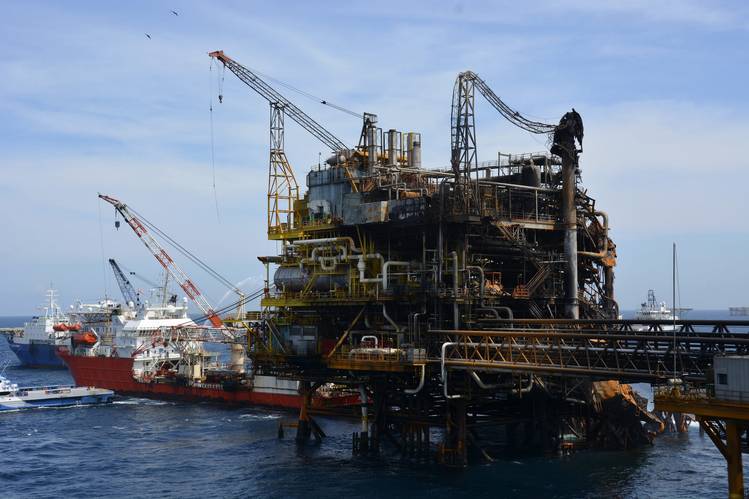Business
80 Deepwater Oil Blocks Not Producing, Says NNPC

- 80 Deepwater Oil Blocks Not Producing, Says NNPC
Only seven out of the 87 deepwater oil blocks in Nigeria are producing, while six are at different phases of development, the Group Managing Director of the Nigerian National Petroleum Corporation, Dr Maikanti Baru, has said.
Baru also said more than half of the deepwater blocks were open and urged players in the oil and gas sector to start to create adequate linkages to the local economy.
In a statement made available to our correspondent by the NNPC in Abuja on Wednesday, he said the economy must be able to deliver the required growth aspirations or adequately support the demands of tomorrow.
He said the NNPC would continue to support planned deepwater projects while ensuring adequate local participation.
Baru said, “At my last count, about 10 deepwater projects are lined up for sanctioning. Also, given the lead time for project maturation, the time to build is now for us to achieve the results we desire, seizing the chance to develop our oil and gas industry and by extension the economy.”
Baru also said deepwater operations in the country had generated revenue exceeding $180bn.
He said the revenue was generated following industry players’ capital investment in excess of $65bn with the potential for growth amid untapped abundant opportunities in the sector.
The GMD disclosed this while delivering a paper, titled ‘Deepwater operations in Nigeria: The journey so far,’ at the panel session of the Petroleum Technology Association of Nigeria during the ongoing Offshore Technology Conference in Houston, Texas.
Represented by the Chief Operating Officer, Upstream of the NNPC, Mr Bello Rabiu, he stated that Nigeria held approximately 13 billion barrels of oil, out of which about two billion had been produced with a huge volume yet untapped.
Baru said the country remained an active player relative to other regions in terms of deepwater development, stressing that the industry started with the deployment of the latest technology.
He was quoted in a statement issued by the firm as saying, “Out of the 15 Floating Production, Storage and Offloading vessels in Nigeria, seven have been deployed for deepwater operations. Nigeria ranks only behind Angola within the African deepwater operations in terms of FPSO deployment.”
According to the GMD, the country has utilised each deepwater project as an avenue to upscale its unique human capital skills in different areas not limited to engineering design, project management, welding and diving.
He added that the local content contribution or services share in deepwater had continued to grow and improve from less than one per cent to an aggregate contribution of over 25 per cent from engineering man-hours of less than 20,000 to over 1.1 million in Egina project.
“With the Nigerian content, tonnage has grown by 600 per cent from the first deepwater project till date,” Baru noted.
The NNPC helmsman stated that deepwater projects had benefitted the wider Nigerian economy by boosting demand for a range of goods and services, including offshore vessels and platforms, materials, floating hotels, helicopters and manpower, creating jobs and providing a wide range of training and maintenance services to the industry locally.
He added that services in areas such as manpower supply, logistics, and vessel supply, chemical supplies had more or less been domesticated in the deepwater value chain.
Baru stated that a further demonstration of this was the in-country topside integration on the Egina FPSO project, adding that this had achieved the dual goal of both industrialisation and manpower development through job creation and skill acquisitions.
“The gains enumerated in terms of production and reserve growth, revenue and value creation, manpower and technology development need to be sustained. I must reiterate that sustaining these gains means all hands must be on deck. We must leverage the expected growth in deepwater for national development. We expect within the next 10 years that production from Nigeria deepwater would double,” Baru said.
He said that the development implied an increase in steel demand as steel represents 20 to 35 per cent of the overall cost for a new-build structure, dry docking, pipe coating, welding and sundry ancillary services, adding that Nigeria needed the right calibre of technical and engineering skills and manpower.